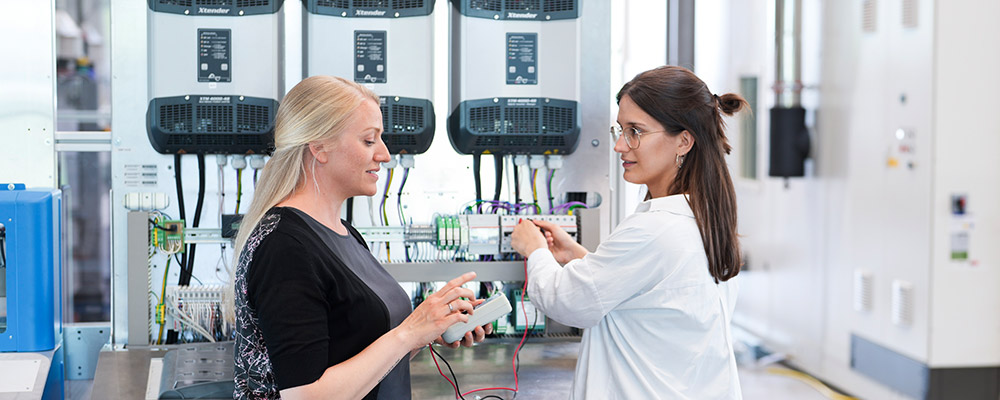Accueil » WP13: Robust decentralised energy management methods with (...)

The work package “Robust decentralised energy management methods with low data exchange and high interoperability” runs over the whole project duration. When realising intelligent self-consumption and energy storage, it is important to coordinate a wide variety of appliances within a household, as well as different households with each other. This requires intelligent energy management algorithms and efficient communication between the appliances and between the households. As both the appliances and the households can be very different, it is important to design energy management in such a way that a high level of interoperability and robustness is guaranteed.
Decentralised energy management algorithms are to be investigated and further developed in this work package. Decentralisation should help to keep communication requirements low by ensuring that subsystems have their own intelligence and decision-making power and that not all system states have to be communicated to a central control unit or control commands have to be communicated back. There also does not have to be a comprehensive central system model, but the subsystems should regulate themselves in an encapsulated manner. Of course, there is still communication between the subsystems, but at a higher information level with a lower level of detail. By defining suitable standard data interfaces, a very high level of interoperability can be guaranteed, making energy management solutions easier to implement and therefore more practical and robust. In the work package, various approaches from the literature will be examined and evaluated for their suitability in the project, from swarm-based approaches to decentralised optimisation approaches such as alternating direction method of multipliers (ADMM). The most promising candidate will then be applied to the specific problem of the ASIMUTE project and further developed. Specifically, the following actions are planned:
In a first action, existing approaches from the decentralised control of large energy systems are to be transferred to the control of components within a locally limited energy system, such as that of individual households, but also to the interaction between different households. The aim is to use cross-system key information about the overall system status (such as power surplus or power shortage) for intelligent decentralised reactions and strategies of individual devices (such as charging points, flexible loads, etc.) or households and to optimise the interaction.
These energy management solutions will initially be developed and optimised on a simulative basis.
In a second action, the existing test microgrid with real energy system components (PV system, lithium-ion storage, bidirectional charging station, controllable loads, …) at the Institute for Sustainable Energy Systems (INES) at Offenburg University and the power hardware-in-the-loop environment there will be used to emulate real prosumers with regard to their energy system components and their data interfaces. The solutions developed are to be implemented and extensively tested in these test environments. To this end, real load curves and PV generation curves for various prosumer scenarios are to be used in order to to evaluate the performance of the energy management algorithms with regard to various key performance indicators such as self-consumption. The aim is to create a showcase that can be presented to the interested public.
Finally, in a third action, the results will be evaluated with regard to a possible nationwide roll-out in the future energy system.
Automated energy management algorithms can help to support the realisation of energy-saving measures identified in WP3. Findings from the requirements for technical solutions from WP4 are very valuable in order to create energy management solutions that have a corresponding user acceptance. Of course, technical solutions must also comply with legal framework conditions, which are analysed in WP6. Intelligent energy management algorithms usually require forecasts of generation and loads, as investigated and developed in WP 8. There are further interfaces to work packages dedicated to the operational management of components such as heating systems or batteries, although not with a special focus on decentralisation.

Hochschule Offenburg
Badstraße 24,
77652 Offenburg
Germany
Copyright © 2024-2025 IRIMAS Institute | Université de Haute-Alsace